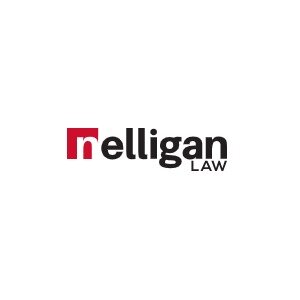Best Antitrust Litigation Lawyers in Ottawa
Share your needs with us, get contacted by law firms.
Free. Takes 2 min.
List of the best lawyers in Ottawa, Canada

KENTUADEI ADEFE, FOREIGN LEGAL CONSULTANT ON NIGERIAN LAW
15 minutes Free ConsultationCanada Antitrust Litigation Legal Articles
Browse our 1 legal article about Antitrust Litigation in Canada written by expert lawyers.
- Canada Competition Act Updates: Risks for Foreign Investors
- Lower Intervention Thresholds: The Competition Bureau can now challenge mergers that significantly lessen competition even if they do not create a total monopoly. Global Revenue Penalties: Violations may result in administrative monetary penalties (AMPs) of up to 10% of a company's worldwide gross revenue or three times the benefit derived... Read more →
About Antitrust Litigation Law in Ottawa, Canada
Antitrust litigation, also known as competition law litigation, involves legal actions related to alleged violations of laws that promote fair competition in the marketplace. In Ottawa, Canada, these laws are designed to prevent practices such as price fixing, monopolistic behaviors, bid rigging, and abuse of market dominance. The enforcement and interpretation of antitrust laws in Canada fall under the federal Competition Act. While the city of Ottawa does not have unique antitrust laws, cases arising in Ottawa are heard by Canadian courts and may involve businesses operating locally, nationally, or internationally.
Why You May Need a Lawyer
Legal assistance is crucial in antitrust litigation for several reasons. Businesses or individuals may require a lawyer if they are:
- Accused of engaging in anti-competitive practices such as collusion or price fixing
- Victims of monopolistic practices negatively affecting their business operations
- Subjects of investigations by the Competition Bureau
- Pursuing or defending a class action involving cartel behaviors
- Participating in mergers or acquisitions that could trigger competition reviews
- Negotiating immunity or leniency with regulators
- Responding to subpoenas or document requests in an ongoing investigation
A qualified antitrust lawyer ensures compliance with the law, helps reduce risks, represents clients in court, and offers strategic advice during disputes or investigations.
Local Laws Overview
In Ottawa, antitrust litigation is governed at the federal level primarily by the Competition Act. The Act covers many anti-competitive practices, including price fixing, market allocation, bid rigging, abuse of dominant position, deceptive marketing, and merger reviews. The Competition Bureau, based in Ottawa, is the main enforcement agency responsible for investigating breaches.
Key aspects include:
- Cartel Offences: Criminal penalties apply to agreements between competitors to fix prices, allocate markets, or restrict output.
- Abuse of Dominance: Prohibits firms from abusing a dominant market position to harm competition.
- Mergers: Certain mergers must be reviewed to ensure they do not substantially lessen or prevent competition.
- Private Actions: Individuals and businesses harmed by anti-competitive conduct may seek civil remedies through the courts.
Cases in Ottawa are typically heard in the Federal Court or the Ontario Superior Court of Justice.
Frequently Asked Questions
What is antitrust litigation?
Antitrust litigation refers to legal action involving alleged violations of competition laws that aim to promote fair marketplace practices and prevent anti-competitive conduct.
Who enforces antitrust laws in Ottawa, Canada?
The Competition Bureau, headquartered in Ottawa, is the federal agency primarily responsible for investigating and enforcing antitrust laws in Canada.
Can individuals or businesses start antitrust lawsuits?
Yes, individuals and businesses can commence private actions if they suffer loss or damage from anti-competitive conduct prohibited by the Competition Act.
What are some examples of anti-competitive practices?
Examples include price fixing, bid rigging, exclusive dealing, market allocation, abuse of dominant market position, and mergers that harm competition.
What penalties can result from antitrust violations?
Penalties may include substantial fines, imprisonment for individuals, prohibition orders, and damages awards in private litigation.
Do mergers or joint ventures require approval under antitrust laws?
Certain larger mergers and some joint ventures must be reviewed to ensure they do not harm market competition.
What should I do if I am under investigation by the Competition Bureau?
Immediately seek legal advice from a qualified competition lawyer. Cooperation and legal guidance can help mitigate risks or negotiate settlements.
How long do antitrust litigation proceedings usually last?
The duration varies depending on case complexity. Investigations and litigation may last from several months to multiple years, especially for large-scale or class action cases.
Can criminal charges arise from antitrust violations?
Yes, certain conduct such as cartel offenses carries criminal liability, which can result in fines and potential incarceration.
Is antitrust law the same as competition law?
Yes, in Canada, the terms are used interchangeably. Both refer to legal frameworks that promote fair competition and prevent anti-competitive practices.
Additional Resources
- Competition Bureau: Federal agency responsible for the administration and enforcement of antitrust laws in Canada
- Canadian Bar Association - Competition Law section: Professional group with resources and lawyer directories
- Ontario Ministry of the Attorney General: Oversees provincial courts relevant for related civil litigation
- Local legal aid clinics in Ottawa: May offer information or referrals related to civil litigation
- Law Society of Ontario: Find licensed lawyers and obtain legal information
Next Steps
If you believe you are involved in or are impacted by issues related to antitrust or competition law in Ottawa, Canada, consider taking the following steps:
- Document any relevant information or correspondence related to your situation
- Contact a lawyer with experience in antitrust or competition law for an initial consultation
- If under investigation, politely cooperate but avoid making statements before consulting legal counsel
- Research and utilize local and federal resources to stay informed about your legal rights and obligations
- Consider acting promptly, as delays can affect your legal options or potential remedies
Seeking professional legal advice early can help protect your interests, ensure compliance with the law, and provide guidance on the best course of action.
Lawzana helps you find the best lawyers and law firms in Ottawa through a curated and pre-screened list of qualified legal professionals. Our platform offers rankings and detailed profiles of attorneys and law firms, allowing you to compare based on practice areas, including Antitrust Litigation, experience, and client feedback.
Each profile includes a description of the firm's areas of practice, client reviews, team members and partners, year of establishment, spoken languages, office locations, contact information, social media presence, and any published articles or resources. Most firms on our platform speak English and are experienced in both local and international legal matters.
Get a quote from top-rated law firms in Ottawa, Canada — quickly, securely, and without unnecessary hassle.
Disclaimer:
The information provided on this page is for general informational purposes only and does not constitute legal advice. While we strive to ensure the accuracy and relevance of the content, legal information may change over time, and interpretations of the law can vary. You should always consult with a qualified legal professional for advice specific to your situation.
We disclaim all liability for actions taken or not taken based on the content of this page. If you believe any information is incorrect or outdated, please contact us, and we will review and update it where appropriate.








